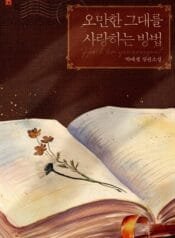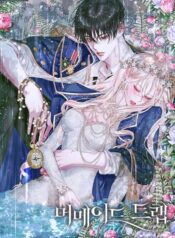The journey to Burwood was a nightmare.
Ah, Helena corrected herself.
‘Not the entire journey was terrible.’
The journey from Hodlin, Winston’s estate, to Duras, where the Gate was, had been smooth and familiar – a comfortable and pleasant journey.
She left Hodlin in the carriage prepared by Count Winston, surrounded by the tearful farewells of those who loved her.
The carriage, arranged by her father, glided over the well-maintained roads as if skating on ice.
Whenever they passed through particularly scenic areas, she and her maids enjoyed picnics in the carriage, and when night fell, they stayed as honoured guests at the estates of noble families she knew.
“I can’t believe it. A journey that would take a single day on horseback… and we’re dragging it out for three”.
Benjamin Ishpern muttered under his breath, clearly loud enough for her to hear – but Helena couldn’t have cared less.
‘He’s so loud. I wish he’d shut up.’
That was the only thing on her mind.
The pleasant and comfortable part of the journey ended in Duras, the central city of the North.
Once in Duras, she had to send the carriage and her maids back. To reach the South, she had to use the Gate – the fastest and safest way to travel between the regions of the Empire.
But from the moment she set foot in the strange ruins, Helena’s personal hell began.
The Gates were originally designed to be the main travel routes for Imperial nobles.
But Helena, who had never left the capital or its surrounding cities, had never used one.
And so she had no idea – no idea – how badly she would react to Gate travel.
The sensation was unlike anything she had ever experienced.
It felt as if her entire body had melted like a sugar cube dropped in water—only to be forcefully re-compressed and shoved back together again.
It was like a terrible hangover—only three times worse.
In short, it was violently disgusting.
As soon as she stepped out of the gate in Larynx, the capital of the South, Helena emptied the entire contents of her stomach into a paper bag she was holding – and promptly passed out.
But that wasn’t the end of her ordeal.
When she came to, she almost fainted again – this time at the sight of the carriage waiting for her.
It looked more like a coffin than a carriage: old, rickety and utterly shameful.
A string of curses rose to the tip of her tongue at Count Ishpern’s utter lack of preparation.
But she forced them back down.
‘No. I won’t expect anything from this man.’
As Helena climbed into the carriage with a scowl on her face, she heard the Count mutter behind her.
“I’m sure it’s not to your liking, but this was the only carriage I could secure at short notice.”
Helena shot him a withering glare – one sharp enough to kill a lesser man on the spot – then slammed the carriage door shut with enough force to make it echo.
The rusty hinges screeched in their place, as if crying out in protest.
And so, loaded into her coffin-like carriage, Helena began her grand tour of hell.
According to a man called Aaron – one of the Count’s servants – the journey from Larynx to Burwood would take seven days of non-stop riding on horseback. He added that it would probably take a day or two longer by carriage.
In the end, Helena’s grand tour of hell took ten full days.
And during those ten days she endured such misery that she often thought death would be preferable.
In the cheap, rickety carriage, hurtling along the rough roads, Helena’s body bounced up and down.
It was as if her brain was trampolining inside her skull, and with each shuddering vibration of the wheels, her lower jaw trembled and her teeth clicked sharply together.
Naturally prone to headaches, Helena had always lived with a certain amount of pain – but this was on a whole other level.
With her eyes closed, her teeth chattering and her mind unravelling from the stress and relentless nausea, she was gripped by a monstrous headache – as if a rusty rake was slowly dragging through her brain.
Wrapped in fur, she curled up on the seat of the carriage, enduring the nausea and throbbing pain over and over again.
From time to time, when the wheels hit a large stone, her fragile body would rise briefly into the air – only to fall back to the hard floor of the carriage.
At such times, tears of pure, angry rage would stream down her pale cheeks.
Meanwhile, Count Ishpern – perhaps hoping she’d simply drop dead – would sneak glances at her several times a day, pretending not to look.
In return for his pathetic excuse of concern, Helena shot him looks of seething hatred.
Even swallowing had become difficult. Water tasted like metal, food like dirt.
Eventually, Helena gave up entirely on eating. If everything was just going to come back up anyway, it It seemed better not to eat at all.
But the Count – perhaps now trying to kill her with meals – kept pushing strange, unidentifiable food in her direction, throwing it in front of her as if feeding a stray dog.
In response, Helena made a show of stirring it into a mess before sending it back untouched.
It was miserable while the carriage was moving – but even when it stopped, the nausea didn’t let up.
The moment she stepped out, the ground beneath her feet felt like a muddy swamp, and the sky above her head spun dizzily.
She really felt like she was going to die.
During the ten-day journey, Helena barely ate and never got a full night’s sleep.
It was the worst pain she had ever experienced in her life.
In this hellish agony, the only thing she could cling to was the vivid fantasy of one day bringing justice to that bastard Count Ishpern.
‘When I return to the capital, I’ll ask Her Majesty the Empress to send a carriage for me. And I’ll have that count dragged behind it the entire way.’
The mere thought of Count Ishpern sobbing as he was dragged behind the carriage made Helena feel a little better.
With her pale, sunken face, she let out a faint chuckle.
Ten days later, when Sir Aaron, the Count’s assistant, knocked on the carriage window to tell her they were approaching Burwood, Helena nearly burst into tears of relief.
First I’m going to have a hot bath. Everything will be better after that. Then I’m going to bury myself in a fluffy duvet and not move for at least two days.
But the closer they got to the Ishpern estate, the more her hope turned to foreboding.
Ominous grey clouds, shaped in unnatural patterns, hung heavily across a sky tinted the blood-red of a sunset.
The hill where the Count’s castle stood was overgrown with tall silver grass, taller than a man, and around the moat thick clusters of red spider lilies bloomed like spilled blood.
And in the middle of it all stood a ruin – half charred, half rotten – towering over the landscape.
‘What… is that?’
Helena was so shocked that she momentarily forgot her nausea and sat up straight in the carriage.
The carriage creaked as it slowly passed through the estate’s rusty gate, which no longer closed properly.
She looked up at the archway and the strange decorations hanging from it.
‘What kind of grotesque ornaments are these…?’
But no sooner had the thought crossed her mind than the ‘ornaments’ suddenly spread their wings and let out a chorus of horrible screams.
They weren’t ornaments at all.
They were crows.
The carriage rolled past a garden so overgrown it resembled a jungle, and finally stopped in front of the castle – its walls charred black.
Helena couldn’t even control her expression.
She stepped out of the carriage, her face pale as chalk.
‘I… have to live here?’
Benjamin Ishpern looked at her – still standing there like a ghost – with that familiar crooked smile and said, “Welcome home, my lady.”
***
The castle of the Ishpern estate had apparently caught fire at some point long ago for reasons unknown – and for equally mysterious reasons it had been abandoned ever since.
The inside of the soot-covered castle was dark as a cave, with dusty cobwebs hanging like curtains.
Instead of carpets, every surface was covered in a thick layer of dust, and the air reeked of damp mould.
‘The perfect nesting ground for a treacherous faction plotting to destabilise the Empire.’
Helena thought to herself.
One by one, a handful of servants emerged to greet her.
Each of them moved sluggishly, their faces heavy with lifeless gloom.
Not one of them looked like someone who would have been hired as a stablehand on Winston’s estate.
Count Ishpern handed the reins of his horse to one of the grooms and said.
“Escort the lady to the annex.”






